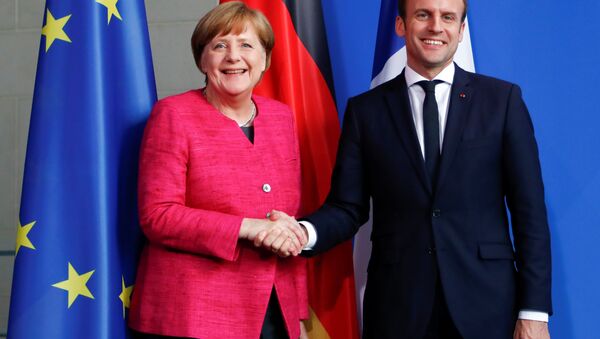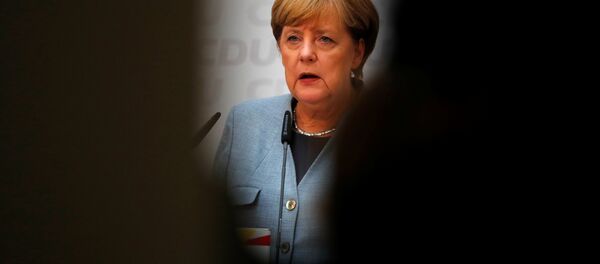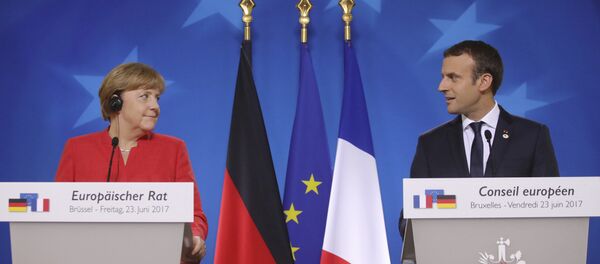According to Merkel's spokesperson Steffen Seibert, she embraced the "European passion" in Macron's view that the EU needs reform, adding that his speech contained "a lot of material" for dialogue.
"This discussion is necessary and sensible," Seibert said in a news conference, explaining that EU leaders would have a chance to exchange views at a meeting in Estonia on Thursday, France 24 reported.
However, according to Seibert, it is "too early for a detailed assessment" of Macron's call for increased cooperation between EU nations.
The French leader proposed a post-Brexit makeover that includes fortifying the 19-member eurozone with a finance minister and a "strong" budget.
Macron said that Europe needs its own budget to "finance joint investments and assure stability when confronted by economic shocks… A strong budget can only go hand in hand with strong political leadership by a common minister and a strong parliamentary supervision at the European level."
He also called for a European "rapid reaction force," a military or police unit designed to respond to emergencies, to work with national armies.
Macron's propositions were met with ambivalence from Germany's pro-business Free Democrats as well as the Greens, potential partners in the bloc government Merkel will institute after her center-right Christian Democratic Union(CDU)/Christian Social Union (CSU) party won the September 24 election.
According to Eckhardt Rehberg, the top CDU member on the party's budget committee, "The problem in Europe is not a lack of money."
Rehberg drew attention to the already established initiatives to increase investment, including the eurozone bailout fund and the European Investment Bank.
According to Rehberg, it is more productive to determine how existing funds can be better used so that countries can execute their own reforms to increase their competitiveness and improve their budgets.
"The taxpayers of other countries cannot relieve them of this duty," Rehberg told Reuters.





